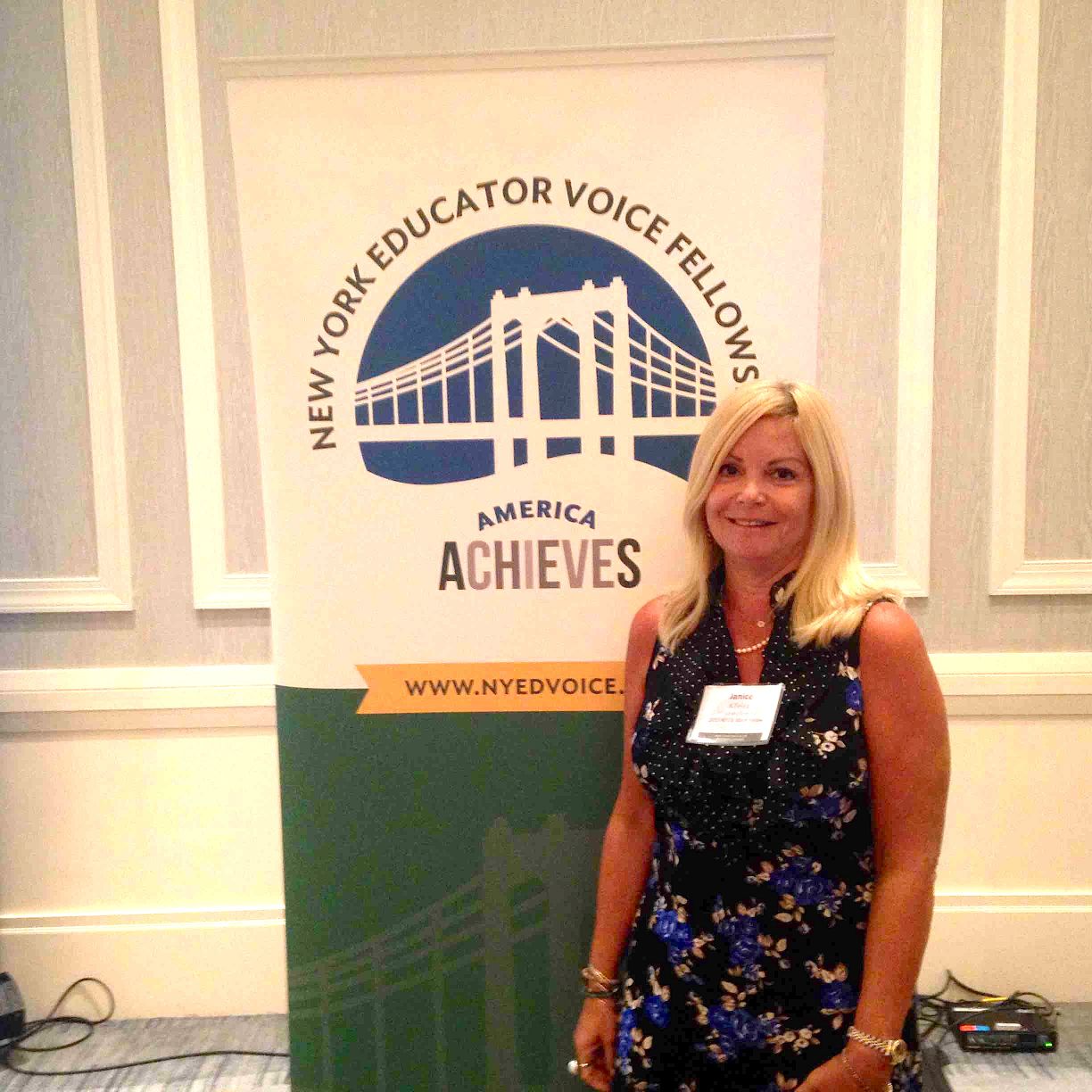Advocating for the controversial Common Core school curriculum in Nassau County can be a daunting task for Janice Killelea.
Many parents have pulled their children out of Common Core tests since the beginning of their implementation in 2012, saying they are unnecessarily strenuous for students and require weeks of preparation.
But the New York Educator Voice fellowship has tasked Killelea, a third grade teacher at Mineola’s Jackson Avenue School, with highlighting Common Core’s positive aspects to show the tests aren’t all there is to it.
“It’s a good thing. We want to challenge our kids and make them college and career-ready,” Killelea said.
Killelea is one of about 50 teachers from across the state to receive the fellowship from education non-profit America Achieves, which started the program last year.
She said she applied for the fellowship because she has seen the Common Core curriculum do good things in her classroom.
Killelea, who has taught in Mineola elementary schools for 25 years, said she sees the benefit to students as they progress through school.
For example, Common Core has third-graders read more non-fiction and write about what they read, as opposed to writing their own stories.
The new math curriculum teaches “mental math,” which Killelea said instills important problem-solving and collaboration skills early in their education.
“When you talk about college and career ready, those are the skills that you want the kids to have, so I feel that going in deeper and focusing in on higher-order thinking skills produces kids that are a lot more prepared for the next grade,” she said.
At the end of August, she and the other fellows met in Albany to share stories like these of Common Core’s positive impacts, as well as ideas about how the new standards could improve education across the state.
Now, over the course of this year, part of Killelea’s job as a fellow is to keep sharing those positive ideas and stories with other teachers, lawmakers and the public.
But she and the other fellows also plan to voice their concerns about “unsolved problems” with Common Core, particularly its assessment tests and their link to teacher evaluations.
“Ultimately, we want to support high standards so that across the state, schools have access to the same levels of education and our students graduate high school having opportunity,” she said in an email.
The fellowship asks Killelea to meet with legislators and speak at conferences to help people understand the much-debated standards.
She also writes op-ed articles highlighting the ways in which Common Core has helped her students — some of which have met some opposition from the “opt out movement.”
Parents in the movement say Common Core’s standardized tests and framework for teacher evaluations are unfair to students and prioritize test scores over their education and well-being.
Killelea said she agrees with many of those parents’ concerns.
Some districts do spend too much time focused on test preparation, she said, and rules about the tests have been harmful to students with disabilities and those who do not speak English as their first language.
But, she said, she tries to point out that the tests, teacher evaluations and classroom curriculum are three separate parts of the whole Common Core system.
“I do respect the parents’ opinions,” Killelea said. “A lot of parents are concerned, but I think you can’t clump it all together.”
Killelea said she thinks most parents want their children to be challenged, and in most cases, Common Core does that in a constructive way.
“If you expect less, you’re going to get less,” she said. “If you expect more from kids, more than likely you’re going to get it.”



